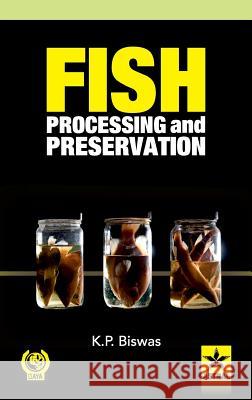Fish Processing and Preservation » książka
Fish Processing and Preservation
ISBN-13: 9789351301097 / Angielski / Twarda / 2014 / 312 str.
The fish, highly nutritious, as first class animal protein and balanced food with essential amino acids in correct proportions for human and animal lives, deteriorates very fast after its death being cold-blooded animal. Their availability is not the same always, showing abundance in some seasons, and shortage in other times. They therefore, need to be preserved, when available in plenty for the use in scarce season in a good condition. The fish being the most widely tradable commodity, world wide, their preservation and processing in a proper manner are all the more necessary for acceptance in global markets.
The problem is two-fold, (i) retardation of spoilage to increase its shelf-life and keeping quality and (ii) processing, which involves in products flow from production sectors to the consumption sectors, besides handling, transport and storage of the products.
The book, "Fish Processing and Preservation", in its seventeen chapters gives a detailed account of nutritional quality and food value offish, the causative agents of their spoilage, determination of spoilage and quality assessment, the retardation of spoilage by cold and heat treatment, desiccation, irradiation, different methods of curing and safe storage of the product for future use.
The different methods of fish processing, including traditional methods of different regions and the most modern methods of value-added and convenient products, together with the utilization of trash fish for production of Fish Protein Concentrate (FPC) for human consumption and fish feed (meal and ensilage) from low economic varieties and fish waste have been dealt in relevant chapters of the book.
With regards to the safety of fish food, the precautions required for handling raw materials, in the processing lines, storage and transport to the consumer points along with quality control measures have been discussed in details in the book.











